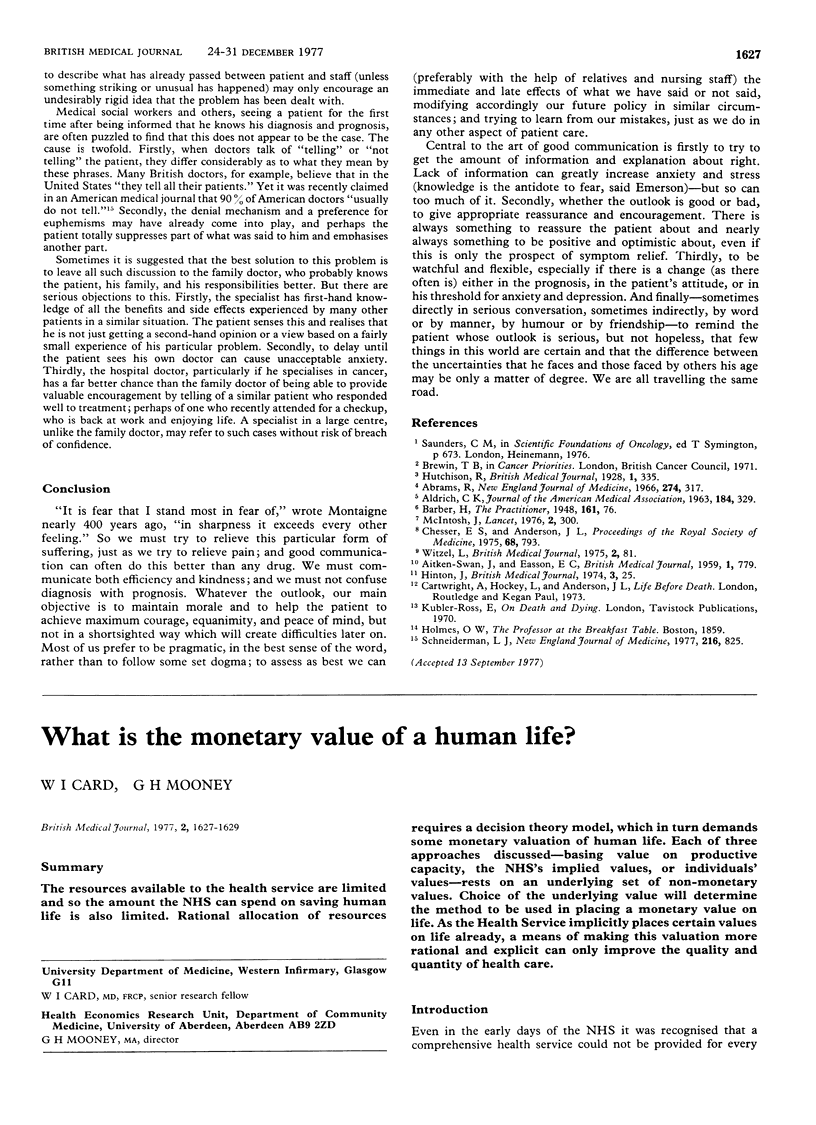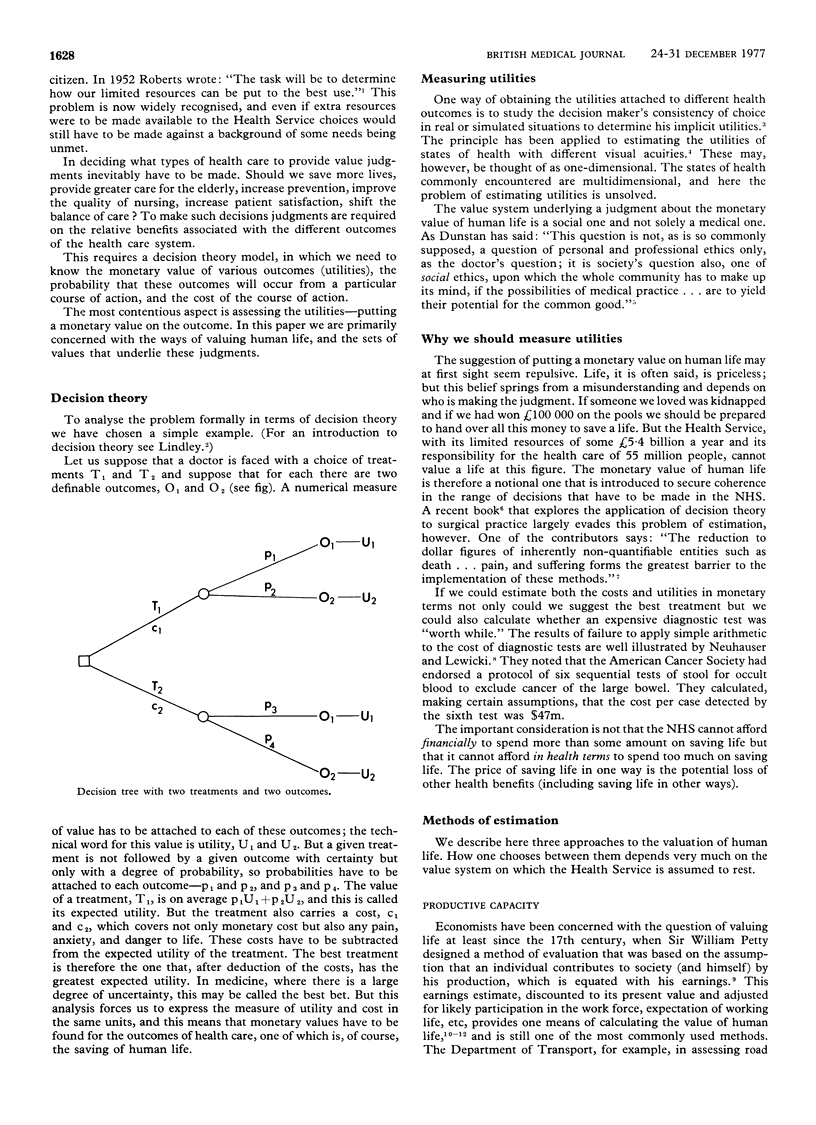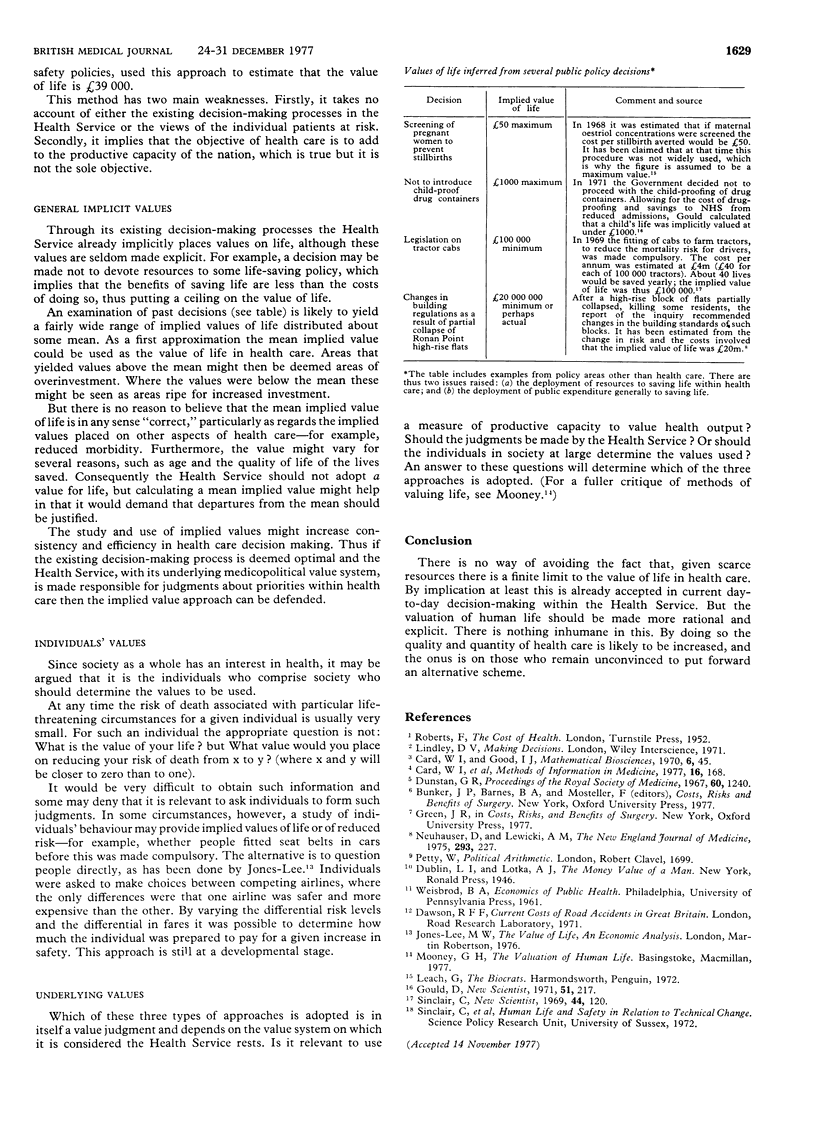Abstract
The resources available to the health service are limited and so the amount the NHS can spend on saving human life is also limited. Rational allocation of resources requires a decision theory model, which in turn demands some monetary valuation of human life. Each of three approaches discussed--basing value on productive capacity, the NHS's implied values, or individuals' values--rests on an underlying set of non-monetary values. Choice of the underlying value will determine the method to be used in placing a monetary value on life. As the Health Service implicitly places certain values on life already, a means of making this valuation more rational and explicity can only improve the quality and quantity of health care.
Full text
PDF


Selected References
These references are in PubMed. This may not be the complete list of references from this article.
- Card W. I., Rusinkiewicz M., Phillips C. I. Utility estimation of a set of states of health. Methods Inf Med. 1977 Jul;16(3):168–175. [PubMed] [Google Scholar]
- Dunstan G. R. Sanctity of life. A professional ethics not enough. Proc R Soc Med. 1967 Nov;60(11 Pt 2):1240–1241. doi: 10.1177/003591576706011P211. [DOI] [PMC free article] [PubMed] [Google Scholar]


